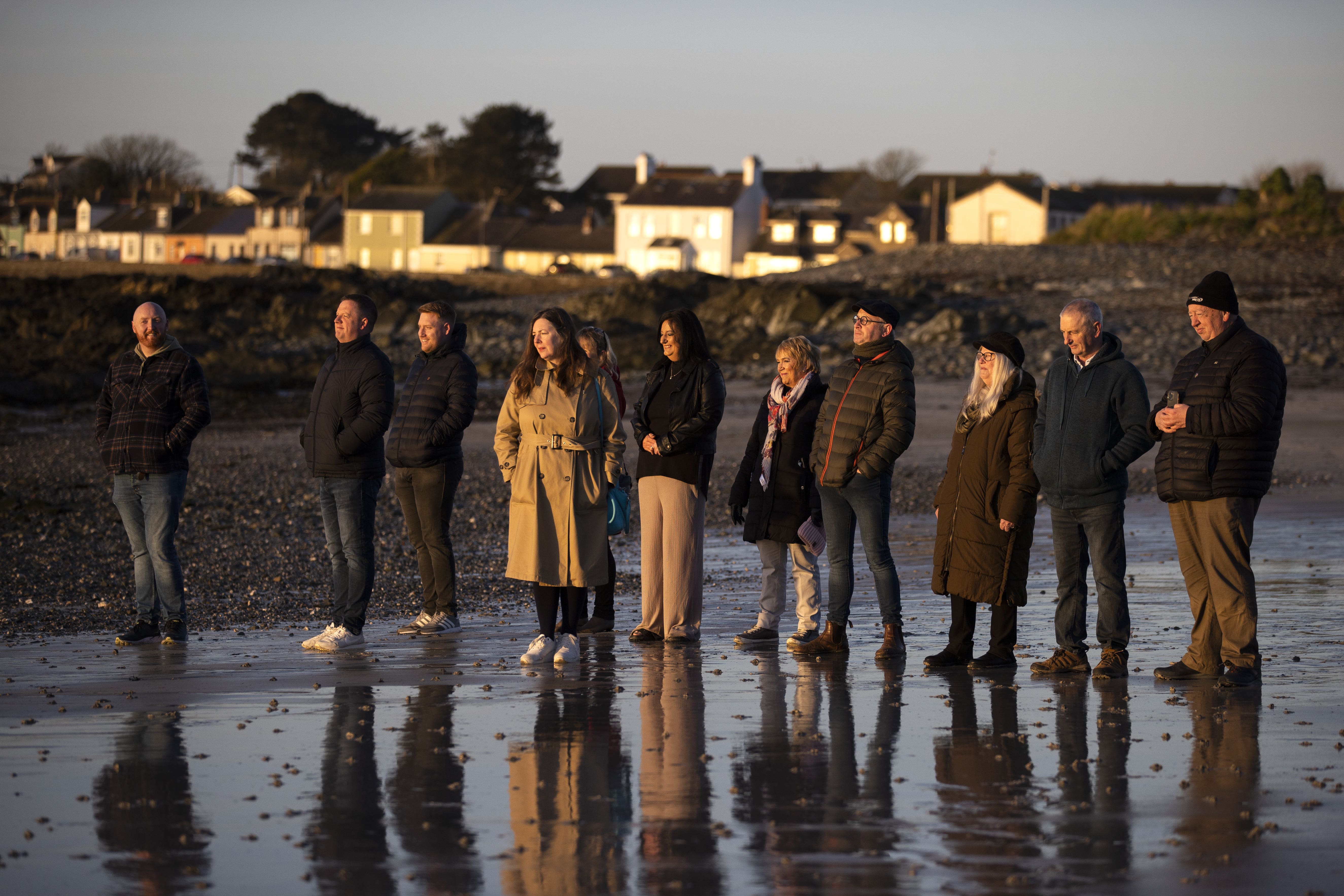Events being held in Northern Ireland to reflect on Good Friday Agreement
Victims of the Troubles are to gather in Co Down to watch the sunrise.

Your support helps us to tell the story
From reproductive rights to climate change to Big Tech, The Independent is on the ground when the story is developing. Whether it's investigating the financials of Elon Musk's pro-Trump PAC or producing our latest documentary, 'The A Word', which shines a light on the American women fighting for reproductive rights, we know how important it is to parse out the facts from the messaging.
At such a critical moment in US history, we need reporters on the ground. Your donation allows us to keep sending journalists to speak to both sides of the story.
The Independent is trusted by Americans across the entire political spectrum. And unlike many other quality news outlets, we choose not to lock Americans out of our reporting and analysis with paywalls. We believe quality journalism should be available to everyone, paid for by those who can afford it.
Your support makes all the difference.Several events are taking place in Northern Ireland as people reflect 25 years on from the Good Friday Agreement.
While the 25th anniversary of the signing of the accord is April 10, the holy day of Good Friday will always be associated with the diplomatic feat that brought 30 years of bloodshed largely to an end.
Early on Friday morning, some victims of the Troubles gathered on a Co Down beach to watch the sunrise as they looked back on the deal that changed the region’s future and became a blueprint for resolving global conflicts.
Later in Belfast, people living on both sides of a community interface will come together to commemorate the peace agreement.
Residents from the predominantly unionist Shankill Road and largely nationalist Falls Road will form a human peace wall.
At the same time at Stormont political figures involved in the negotiations 25 years ago will gather for a commemorative event at Parliament Buildings.
In the Republic of Ireland, Dublin Unitarian Church is to hold its annual service to commemorate all those who died in the conflict, and in the time that followed.
More than 3,600 names of the people killed in Northern Ireland between 1966 and 2019 will be read out from noon until 3pm, and will include journalist Lyra McKee who was shot dead by dissident republicans in Londonderry four years ago.
The sunrise event at Killough beach was organised by the Wave Trauma Centre, which supports victims of the conflict.
Alan McBride, whose wife and father-in-law were both killed in the 1993 Shankill bomb in Belfast, voted yes in the referendum on the 1998 deal, despite the accord involving the early release of paramilitary killers, including the man responsible for the IRA bomb on the Shankill.
Mr McBride, who gathered with fellow victims on the beach on Friday, said he viewed the Good Friday Agreement as a “breakthrough”.
“It was a watershed in Northern Irish society in terms of the Troubles and coming through it. I never thought they ever would,” he told the PA news agency.
“I voted yes back then, my dad actually didn’t vote yes, he just couldn’t do it because of the prisoner releases and stuff.
“Twenty five years on, I would have thought that we would have been much further down the road to the sort of society that I believed we were voting for in ’98.”
He added: “I do think that our politicians have really let us down if I am being honest with you.”
The anniversary of the historic deal comes as Northern Ireland’s powersharing institutions remain collapsed, in a protest by the DUP over post-Brexit trading arrangements.
Despite a fresh framework struck between the EU and the UK Government earlier this year that looked to tweak the operation of the contentious Northern Ireland Protocol, Stormont has not returned.
Next week, US President Joe Biden will visit Belfast in a trip to commemorate a quarter of a decade since the US-brokered peace accord.
The following week, further events will be held which are to be attended by former US president Bill Clinton and his wife, former US secretary of state Hillary Clinton.
Harking back to the reaction to the GFA in 1998, Gerry Murphy, the Irish Congress of Trade Unions’ assistant general secretary, said that the agreement is still the way forward.
He said: “When Congress reacted to the agreement signed on April 10 1998, it stated that ‘Congress believes that overall it represents an important step towards peace and reconciliation.
“‘In the unprecedented circumstances now prevailing, Congress is therefore uniquely recommending that trade union members vote Yes in the referenda on May 22.’
“The support we pledged then is still in place. The agreement remains the road map to a decent future for all.”